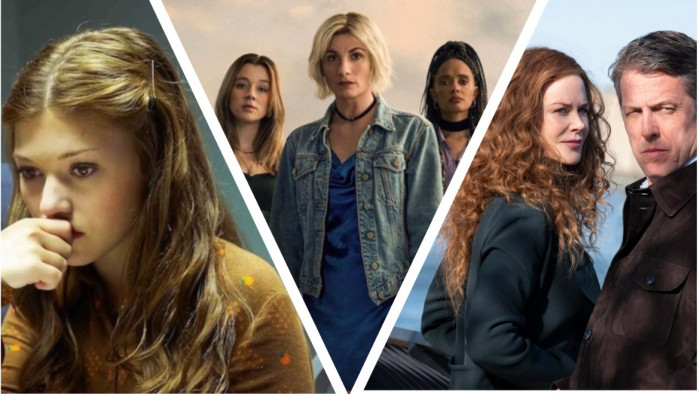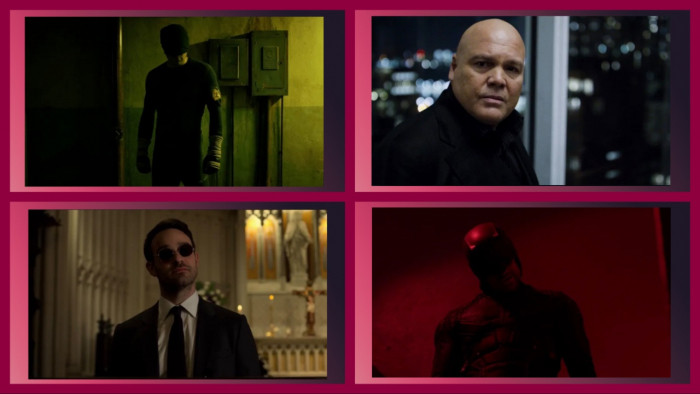So far, Game of Thrones’ sixth season has been an intense, heady mix.
There've been funerals, death, old-person magic, resurrection, kinslaying, kingslaying, feeding babies to dogs, bringing back dead people and a bit of skull-crushing thrown in for good measure. Oh and some tree-mojo-time travel-flashbacks, just to shake things up.
It’s been an arresting start to the season in a show that’s quite happy setting the table at the start of each year. But Game of Thrones is picking up pace. Despite the characters still moving in their own directions (and as we learn this week, some characters going in completely new directions) there’s a sense of things coming full circle this year, a weird calm descending in a world where grim, claw-your-own-face-off-with-grief awfulness is usually a dime a dozen.
Fans have been highly anticipating this week’s episode, Oathbreaker, for one big reason in particular (see below) but despite featuring a lot less death (comparatively), Game of Thrones has started to see the wood for the trees and it’s all the more satisfying for it. Here are the five biggest moments from Oathbreaker.

Jon Snow’s watch has ended
Last episode's close on a newly resurrected Jon’s first, lurching gasps was incredible. This week wastes no time getting down to the nitty-gritty. Perplexed and breathless after being brought back, Jon has a chat with Davos about what he remembers; chiefly, his sworn brothers stabbing him in the heart for doing the right thing.
Watching Jon emerge from his chamber, greeting the swathes of Nights Watch men and wildlings is a powerful image. “They think you’re some kind of God,” Tormund says, before telling Jon he took a look at the bastard’s dick while he was dead. Okay!
Jon does some official business, like hang the men who betrayed him, which means we finally see Alliser Thorne suffer for his several years of relentless dickheadedness. Thorne is uncompromising in defending his actions, telling Jon he believes was doing the right thing. Olly the orphan also dies, silently, which is oddly satisfying.
Jon hands over his cloak to Edd and declares him the new Lord Commander, saying “my watch has ended”. But his most chilling scenes this week surround his conversation with Melisandre, who is full of questions about life after death. What was it like? What did he see? Was Stannis hanging out there? (she didn’t ask that last one, but you’ve got to wonder). Jon’s answer: there was nothing. Absolutely nothing.

Ramsay gets a new prisoner
While Sansa’s escape facilitated a new development in Ramsay Snow – the guy finally loses a bit of the power and control he’s thrived off since we first met him – that’s all changed this week with the delivery of a new captive: Rickon Stark.
Rickon and Osha, you might remember, split from Bran’s group at the end of Season Three so they could evade capture. While Bran went to the Wall, Osha and Rickon went to the Last Hearth, the seat of House Umber, for protection (the Umbers are loyal to the Starks. Well, they were).
The new Lord Umber has a tense exchange with Ramsay, saying he doesn’t want to bow to the self-appointed Warden of the North, but the Umbers are the first stronghold the Wildlings will come across if they march South. It seems like he hands Rickon over regretfully, rather than this being a straight-up betrayal.
Ramsay asks how he knows it’s him, and – trigger warning – the Umber brings him the head of Rickon’s direwolf, Shaggydog, with a rusty hook in his skull.
So Ramsay now has a Stark in Winterfell, which he’ll either use to curry favour with the other hostile Northern houses or as bait to lure Jon into handing over Sansa. While men inherit lands, titles etc before women (making Rickon more important than Sansa), Ramsay can’t use Rickon to produce an heir, so it’s all a bit stand-offish. There’s also the small matter of Ramsay claiming Bran and Rickon were killed by Theon, which complicates things.

Cersei has a plan for her new bodyguard
Everyone in King’s Landing is pretty freaked out by Cersei’s hulking bodyguard, and this week we finally learn what she plans to do with him. The show’s been pretty vague regarding what exactly is holding him together and how he was reanimated, but from our dealings with the re-dead and the zombified we know they’re incredible hard to kill (just ask the Night’s Watch).
Though she’s atoned for the sins she confessed to last season with that harrowing walk of shame, the Faith are still accusing Cersei of a number of other crimes like incest, which she steadfastly denies. The only way to settle things is with a trial, and Cersei wants a trial by combat.
If Gregor, the 8-foot barely unkillable hunk of muscle is her champion, Cersei is going to have a pretty hard time being defeated. But Game of Thrones loves to toy with our expectations, and nothing curdles quite as quickly as a best laid plan.

Arya gets her sight back
After two weeks of being hit by a stick (like, a lot) Arya’s Jedi training gets the montage treatment, as she goes through a deprogramming thing in the House of Black and White. From committing to being no-one and whacking that irritating Waif in the side, to sniffing out deadly poisons like a Beagle at Heathrow airport, Arya’s progress is sufficient that she gets her eyes back.
During that time, she is interrogated about her ‘kill list’ – the reason she killed Meryn Trant last season, and the reason she was blinded in the first place. It’s a reminder that the list is getting smaller and smaller, but there’s an interesting moment when she is asked about taking The Hound off her list and she surmises that maybe she didn’t want him dead any more.
Now she’s ready for the next stage of her training. But how will the cult-like House of Black and White ( who, remember, think the only true God is death itself) feel about Westeros’ current trend for resurrecting and reanimating the dead?

Bran visits the Tower of Joy
The Tower of Joy is one of the most hyped parts of Season Six for book readers. The battle at the tower, which sits on the border between Dorne and the rest of Westeros, takes place 20 years before the show’s timeline starts, and the condensed version goes like this: King Robert was betrothed to Ned’s sister, Lyanna. But she was ‘kidnapped’ by Rhaeger Targaryen (aka Danaerys’ other brother) causing Robert to launch the rebellion that eventually took out the whole Targaryen dynasty and installed him on the throne.
In the books, Ned thinks about the battle during his imprisonment before he's executed, and it’s all quite vague and evocatively written. He promised his sister something, and he’s filled with shame, but the finer details are left off the page, though most people have put two and two together.
Bran watches the fight with the Three Eyed Raven; a young Ned, with Howland Reed and some of his other loyal men approach the Tower, which is being patrolled by the Kingsguard. Their fight is incredible, with Ned taking on Sir Arthur Dayne, the legendary knight with two massive swords. Bran notes Ned is hopelessly outmatched against the older, stronger knight, but he knows his father eventually wins, because this all happened in the past.
Eventually, we see Howland stab Dayne in the back. It’s not the noble end to the battle Bran was expecting. Did Ned lie out of pride? Unfortunately, he is pulled out of the vision by his mentor before he can follow Ned up the tower, where a woman is heard screaming.
What does it all mean? Ned’s slightly dishonest two-on-one fight doesn’t go with what we know of his sense of pride, but we also know he’s involved in a massive cover up at the tower. And why would the Kingsguard be guarding someone who isn’t the King (Rhaeger is mentioned as having just been killed in the Battle of the Trident), unless Lyanna had or was giving birth to Rhaegar’s child, aka the heir to the Iron Throne?
Unfortunately we won’t know the intimate details until a later episode. What’s really interesting is Bran tries calling his father’s name, and he seems to hear him. Is Bran able to influence things in his visions? How is this going to play into later storylines?










